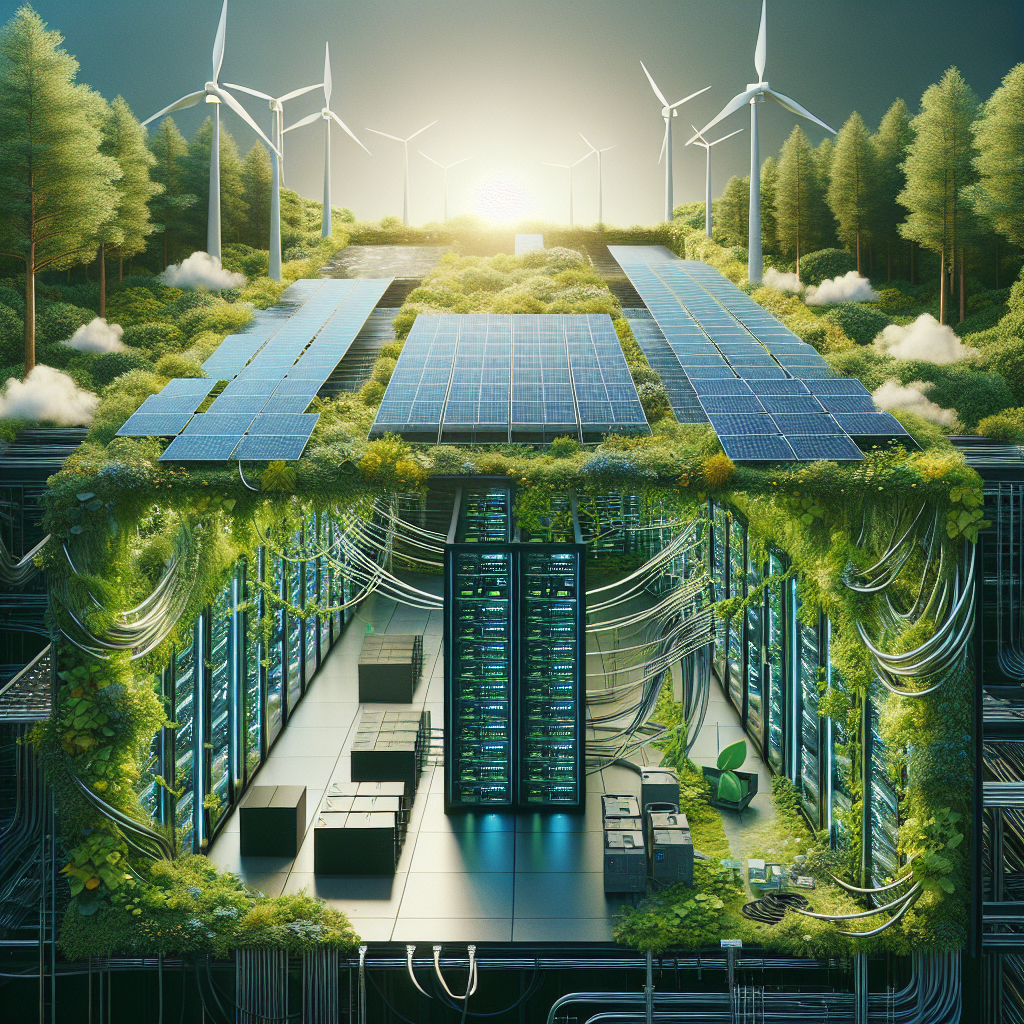Your cart is currently empty!
Challenges and Opportunities in Achieving Data Center Sustainability Goals

Data centers play a crucial role in the modern digital economy, serving as the backbone of the internet and supporting the growing demand for cloud computing, big data analytics, and other digital services. However, data centers also consume a significant amount of energy and resources, leading to concerns about their environmental impact. To address these challenges, data center operators are increasingly focusing on sustainability goals to reduce their carbon footprint and improve their overall environmental performance.
One of the key challenges in achieving data center sustainability goals is the sheer amount of energy required to power and cool the servers and other hardware. According to the U.S. Environmental Protection Agency, data centers are estimated to consume about 2% of the country’s total electricity usage, and this number is expected to grow as more data centers are built to meet the increasing demand for digital services. To address this challenge, data center operators are looking for ways to improve energy efficiency through measures such as server virtualization, more efficient cooling systems, and the use of renewable energy sources.
Another challenge is the issue of water usage in data centers, particularly in regions where water scarcity is a concern. Data centers require large amounts of water for cooling purposes, and this can put a strain on local water resources. To address this challenge, data center operators are exploring alternative cooling technologies such as air cooling or liquid immersion cooling, which can reduce water usage significantly. Some data centers are also implementing water recycling systems to reuse water for cooling purposes, further reducing their environmental impact.
Despite these challenges, there are also significant opportunities for data center operators to improve their sustainability performance. For example, by investing in energy-efficient hardware and infrastructure, data centers can reduce their energy consumption and operating costs while also reducing their carbon footprint. Many data centers are also exploring the use of renewable energy sources such as solar or wind power to power their operations, further reducing their environmental impact.
In addition to improving energy efficiency and reducing water usage, data center operators are also focusing on other sustainability goals such as reducing waste and promoting recycling. By implementing waste reduction and recycling programs, data centers can minimize their environmental impact and contribute to a more circular economy. Some data centers are also exploring the use of green building practices and materials to reduce their overall environmental footprint.
Overall, achieving data center sustainability goals is a complex and challenging task, but one that is increasingly important in today’s digital economy. By investing in energy-efficient technologies, renewable energy sources, and sustainable practices, data center operators can reduce their environmental impact and contribute to a more sustainable future. With the right strategies and investments, data centers can play a key role in driving the transition to a greener and more sustainable digital infrastructure.

Leave a Reply